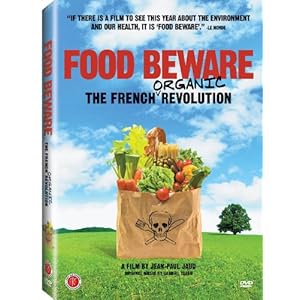I recently came across a documentary made in France about a community that made the decision to provide organic lunches in all of the schools in their region. They brought in scientists and medical professionals and shared with the community about the benefits of local, organic products and the dangers of chemicals and pesticides in our food and water supplies, directly linking several diseases and cancers to the use of pesticides and other chemicals.
Also, within these schools, the children help with an organic garden to teach them how to grow and care for vegetables organically, as well as how to prepare them. Many of the families decide to “go organic” at home too. They found that their food budgets did not increase much; instead, they only bought the things they needed, opting for quality over for quantity, which, in the long run, was also good for their quality of life and health.
It’s an intriguing watch! If you’re interested in a clip, there is one available on YouTube. If you would like to watch the entire video, it runs just under 2 hours and can be watched via Instant Queue on Netflix or you can order it on Amazon.com for around $20. Enjoy the beautiful French landscapes, while experiencing another culture and learning more about organic living!
Some of my favorite quotes from the film include:
“We took our own stance, and are trying, today, to spread it. People throw the cost at us. But you can’t put a price on health. …You don’t listen to the accountant first. You listen first to your conscience. That’s the thing” ~Mayor of the Community that chose to go Organic.
“Do you manage to eat completely organic?” “Not everything? 100% is impossible. Well, it’s possible, but…” “I’ve stopped buying things that I don’t need. So that’s one effect.” “I prefer consuming in this way. I don’t feel such a sucker.” “Exactly! And you’re protecting yourself.” “You reali[z]e some things are unnecessary. As we’re in a society which eats too much, it can’t do us any harm to eat a bit less” ~Two mothers in the district.
“Farming all arable land according to organic precepts would produce enough to feed mankind” ~FAO Report May 2007.
“We have to stop poisoning the earth, the air and our food, with the false excuse that we’re feeding mankind, when in fact we’re starving mankind! This is why we need a total overhaul of the dominant agricultural model to conserve our health and the environment. I assert that we can produce in a different and sustainable way, healthy food in sufficient quantities, with economic performances well superior to industrial methods, if we’d stop replacing peasants [farm workers] with chemical molecules” ~Philippe Desbrosses, PhD in Environmental Studies.
“On average, for a lot of products from intensive industrial farming, you could multiply by three or four the price on the label. They get generous subsidies for producing in that way. The cost of cleaning up pollution, the health costs, the economic cost when there’s overproduction, prices plummet and they demand compensation… All those costs are externali[z]ed, they’re not added to the price, but they’re carried over to your taxes. If they put the real cost on the label, these seemingly cheap products would be more expensive than organic. This needs to be said loud and clear!” ~An educator and speaker.
“As for the children, their palates need educating. We don’t only eat organic, but it’s perfectly easy to go organic. It’s not more expensive. It just means paying attention to what you eat. Being aware” ~A father in the district.

